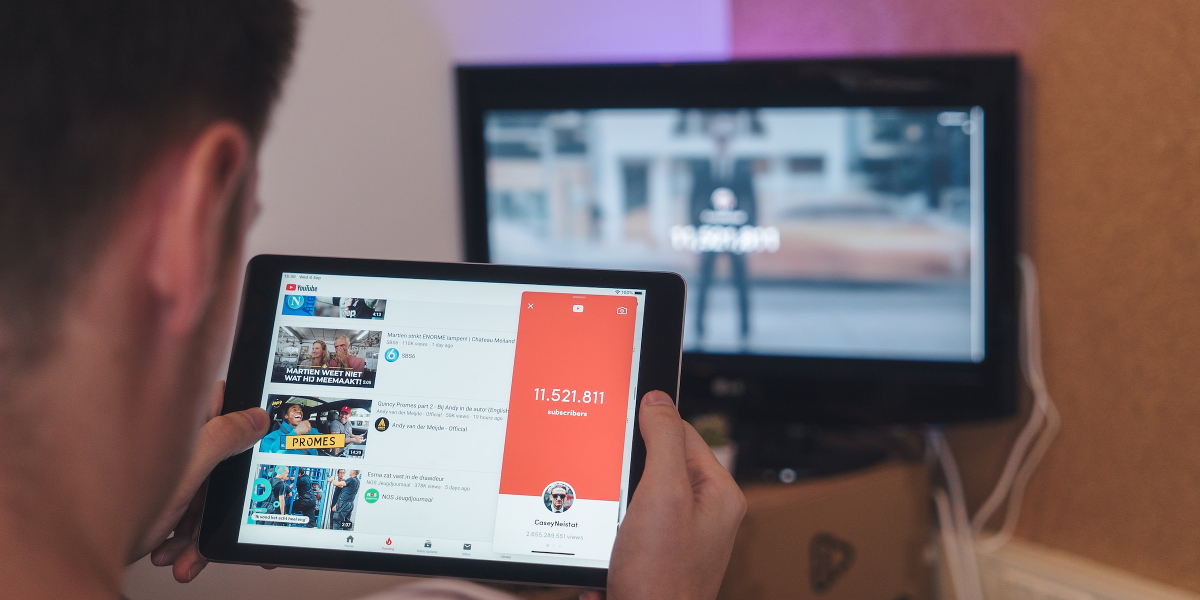The UK government this morning released a draft version of its proposed Media Bill, an update to old broadcasting legislation which is designed to better protect UK public service broadcasters against the threat of international streaming giants.
For public service broadcasters (the BBC, ITV, Channel 4, Channel 5, STV and S4C), the bill relaxes a few of the more restrictive requirements currently placed on them, while also working to ensure they remain prominent and easily accessible in the wider TV landscape. Meanwhile for the streaming giants, the bill introduces new requirements, meaning they’ll face similar conditions to the PSBs they compete with.
Here’s what’s contained in the draft bill:
Guaranteed Prominence for PSBs on CTV Platforms
Public service broadcasters are already guaranteed privileged positioning within electronic programming guides (EPGs) in exchange for adhering to their requirements as PSBs. But this currently doesn’t extend to CTV app platforms found on smart TVs, set-top boxes, and streaming sticks.
The new media bill will change this. All of these platforms will be legally required to carry and prominently feature CTV apps run by the PSBs – namely BBC iPlayer, ITVX, All 4, My5, S4C’s Clic, and STV Player.
How exactly this will play out is unclear. The wording of the draft bill says that PSBs’ apps must be given “an appropriate degree of prominence […] so far as the prominence of that content or channel is affected by the operation [of the CTV platform]”. Ofcom, which will be responsible for ensuring this rule is enforced, will create a code of practice for platforms to help them understand the expectations put on them.
Given that some CTV platforms run sponsored placements at the top of their interfaces, it’s unlikely that PSB apps will be the first thing users see when they turn on their device. But it should at least mean that PSBs apps are easily discoverable and accessible, and don’t get lost in the wider app ecosystem.
Streaming Platforms Can be Reported to Ofcom
The bill talks specifically about bringing non-UK based video on-demand (VOD) services under Ofcom regulation, placing new requirements on them in terms of their content and accessibility. Netflix and Disney+ are explicitly referenced in a press release accompanying the bill, but it will extend more broadly to ‘Tier 1’ VOD services, which will be designated by the government.
These services will have to comply with a new Ofcom content code, which is designed to “protect audiences from a wider range of harmful material”. The government gives an example of misleading health claims. These services will also have to protect children from inappropriate content. Audiences will be able to report content which violates this code to Ofcom, which will be able to take action against those services. Some of the biggest punishments include fines of up to £250,000, or more importantly, restriction of a service’s availability in the UK.
VOD services will also have to meet accessibility requirements, providing subtitles on at least 80 percent of their programmes, audio description on ten percent of their programmes, and signed interpretation on five percent. The government notes that subtitles are available broadly across VOD services shows, but audio description and signed interpretation are much less common.
PSBs will Have More Freedom to Commission
Public service broadcasters each face specific requirements around the types of content, and the volume of certain types of content, they commission. The government says the new bill will introduce “simpler, more flexible rules on what TV programmes public service broadcasters are required to show”.
Significantly, content which appears on PSBs’ CTV services will count towards their content quotas, whereby they’re required to commission and/or broadcast a certain amount of a certain type of content. And content on PSBs’ streaming services will also count towards their wider remits, which are unique to each service.
Channel 4 Can Produce its Own Content
The government has consistently questioned the sustainability of Channel 4’s business model, and for a long time it looked like their solution was to sell it off.
Those plans however were scrapped earlier this year, and the government is now looking for alternative ways to bolster the business. The new bill will actually add a requirement that Channel 4 consistently acts in a way which makes its business as sustainable as possible. But one other significant change within the media bill which might help with this is that existing restrictions which prevent Channel 4 from creating programming itself have been lifted.
Part of Channel 4’s remit is supporting the UK’s independent production industry, and as such it has historically not been allowed to run its own studio. But European broadcasters are increasingly leaning on their in-house studios to support the wider business.
Under the new bill, Channel 4 would be allowed to spin up its own in-house production company – though the government has previously said that relaxations on this restriction will be gradual, so as to not harm the UK’s independent production sector.




